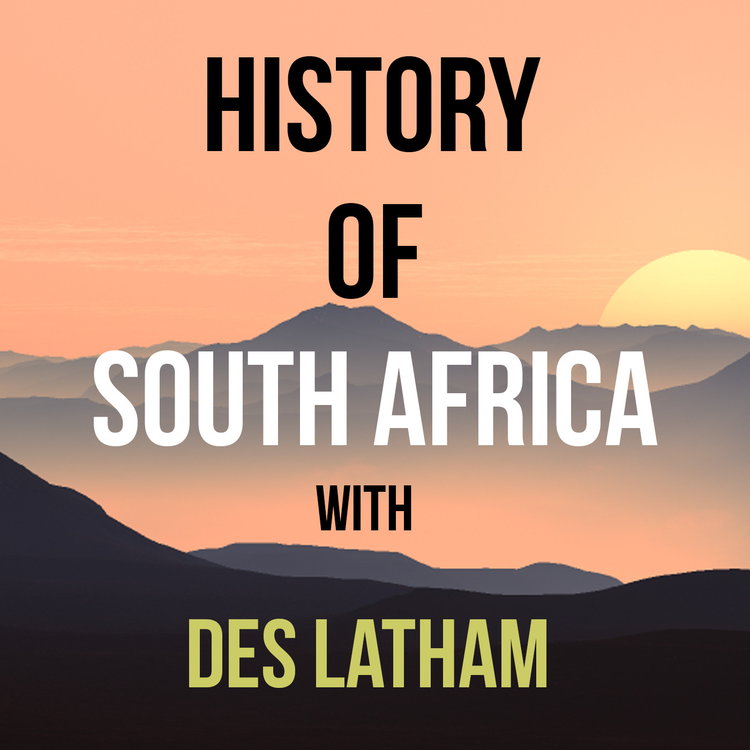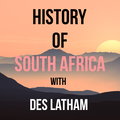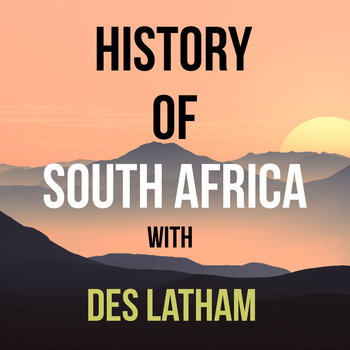
Episode 193: Guthrie’s 1852 Four-Colour Problem, Sports Schedules, Mobile Frequencies, AI, and the Battle of Berea
Loading player...
First off, congratulations to Gcina Mhlophe who is DStv’s content Creator podcaster of the year — I was so happy to shortlisted and incredibly happy for her. Gcina’s African Storytelling podcast is ground breaking please look out for it on all podcast platforms.
And a big shout out to all the other finalists, I was amazed at just how many people in South Africa are making a living out of creating their own content, their own stories. Things sure have changed in the media space!
Back to 1852.
Planet earth had seen quite a few interesting events in that year. Henry Wells and William Fargo put a few dollars together and launched Wells Fargo and Company, in Boston Harriet Beecher Stowe published Uncle Tom’s Cabin, Smith And Wesson the firearms manufacturer was founded, and the Taiping Rebellion in China was gaining momentum,.
The British parliament passed the New Zealand Constitution Act of 1852 which granted the colony self-government — something the settlers in South Africa had been trying to achieve for the Cape.
The First Yale Harvard boat race was held in 1852, and French engineer Henri Giffard made the the inaugural airship trip taking off in Paris and flying to Trappes, Leo Tolstoy published his first book called Childhood in 1852, then a deadly tsunami triggered by an earthquake killed thousands in Banda in the Dutch East Indies, what we know as Indonesia. This is where the echoes of history could be heard more than 150 years later when one of the deadliest tsunami’s ever recorded slammed into Banda Aceh province on Boxing Day of 2004 — killing 228 000 people.
Geology is a swine and geological history definitely repeats itself. There is no doubt that at some point in the future, Banda Aceh will be struck by another massive earthquake, and tsunami.
In 1852, France opened the doors to the dreaded Devil’s Island penal colony made famous by Steve McQueen in the movie Papillon in 1973. And 1973 was three years before 1976, when a postulation made in 1852 was eventually proven true. Amazingly, this postulation, or problem, is at the heart of our lives today.
Let me explain how an apparently obscure event that took place in October 1852 led to a host of technical developments in the 20th Century — and continues to drive innovation today - and it has a South African link.
University College of London student Francis Guthrie studying under the much admired mathematician Augustus De Morgan postulated the question of proving mathematically that no more than four colours would be needed to provide separate tones to shapes that bordered each other on a map. He thought about maps a lot because he also studied botany and ended up earning a Bachelor of Arts and became a lawyer.
Guthrie’s postulation almost flippant in its apparent ludicrousness, was far more complex than it sounded. Don’t roll your eyes just yet, hang in there. What appears simple eluded geniuses of maths for a century and a half. Even Minkowski who was Einstein’s mathematics instructors had a go and gave up - after dismissing previous attempts as the work of second class mathematicians.
Little did the world know, but Guthrie had created a question that would revolutionise computer theory amongst other things like improving sports scheduling, sorting out mobile phone frequency allocation and is the basis of how AI works. Of course, just to add a twist in the tail, there’s a South African connection.
Now back to the maps of 1852 which had just been marked with the newest independent state of the Transvaal in various colours.
Next door neighbours of the Transvaal took note. One was Moshoeshoe of the Basotho. Another was Mzilikazi of the amaNdebele, and Mpande of the amaZulu. Simultaneously, a cry went up around the British Empire amongst settlers demanding self-government, New Zealand was not going to be alone in the moves towards proportional representation of some sort.
And a big shout out to all the other finalists, I was amazed at just how many people in South Africa are making a living out of creating their own content, their own stories. Things sure have changed in the media space!
Back to 1852.
Planet earth had seen quite a few interesting events in that year. Henry Wells and William Fargo put a few dollars together and launched Wells Fargo and Company, in Boston Harriet Beecher Stowe published Uncle Tom’s Cabin, Smith And Wesson the firearms manufacturer was founded, and the Taiping Rebellion in China was gaining momentum,.
The British parliament passed the New Zealand Constitution Act of 1852 which granted the colony self-government — something the settlers in South Africa had been trying to achieve for the Cape.
The First Yale Harvard boat race was held in 1852, and French engineer Henri Giffard made the the inaugural airship trip taking off in Paris and flying to Trappes, Leo Tolstoy published his first book called Childhood in 1852, then a deadly tsunami triggered by an earthquake killed thousands in Banda in the Dutch East Indies, what we know as Indonesia. This is where the echoes of history could be heard more than 150 years later when one of the deadliest tsunami’s ever recorded slammed into Banda Aceh province on Boxing Day of 2004 — killing 228 000 people.
Geology is a swine and geological history definitely repeats itself. There is no doubt that at some point in the future, Banda Aceh will be struck by another massive earthquake, and tsunami.
In 1852, France opened the doors to the dreaded Devil’s Island penal colony made famous by Steve McQueen in the movie Papillon in 1973. And 1973 was three years before 1976, when a postulation made in 1852 was eventually proven true. Amazingly, this postulation, or problem, is at the heart of our lives today.
Let me explain how an apparently obscure event that took place in October 1852 led to a host of technical developments in the 20th Century — and continues to drive innovation today - and it has a South African link.
University College of London student Francis Guthrie studying under the much admired mathematician Augustus De Morgan postulated the question of proving mathematically that no more than four colours would be needed to provide separate tones to shapes that bordered each other on a map. He thought about maps a lot because he also studied botany and ended up earning a Bachelor of Arts and became a lawyer.
Guthrie’s postulation almost flippant in its apparent ludicrousness, was far more complex than it sounded. Don’t roll your eyes just yet, hang in there. What appears simple eluded geniuses of maths for a century and a half. Even Minkowski who was Einstein’s mathematics instructors had a go and gave up - after dismissing previous attempts as the work of second class mathematicians.
Little did the world know, but Guthrie had created a question that would revolutionise computer theory amongst other things like improving sports scheduling, sorting out mobile phone frequency allocation and is the basis of how AI works. Of course, just to add a twist in the tail, there’s a South African connection.
Now back to the maps of 1852 which had just been marked with the newest independent state of the Transvaal in various colours.
Next door neighbours of the Transvaal took note. One was Moshoeshoe of the Basotho. Another was Mzilikazi of the amaNdebele, and Mpande of the amaZulu. Simultaneously, a cry went up around the British Empire amongst settlers demanding self-government, New Zealand was not going to be alone in the moves towards proportional representation of some sort.

